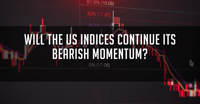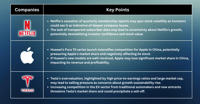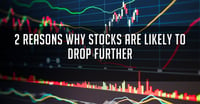Stock investors are trying desperately to interpret what a rise in bond yields means for the stock market.
Since February 10th, 10-year Treasury yields which are not inflation adjusted have moved from 1.13% to as high as 1.61%, a rise of 48 basis points, the highest level in a year. Fear of inflation is causing investors to speculate the Federal Reserve may have to shift policy sooner than expected, by either reducing bond purchases or even raising rates at some point. That would be a negative for stocks.
The recent rise in 10-year bond yields represents a perception about inflation, but it’s not necessarily the reality. The rise in 10-year bond yields does not reflect an actual rise in inflation, it reflects that investors anticipate there will be a rise in inflation. Powell has been pushing back against the idea that over-the-top inflation is coming, noting in his testimony that broad signs of inflation have not been present in the real world, and that if they do occur, any such rises would be “transitory.”
Bond investors are getting worried about the potential for inflation. Powell says to stop worrying about it. Who’s right? It depends on who you ask, and what you are looking at. Oil is approaching the highest since 2018, for example, and copper is at an almost 10-year high. But signs of consumer inflation, for example, have been muted, with inflation at or below 2% for many years.
The rise in commodity prices can be easily absorbed, and analysts believes that much of that rise is just a temporary condition reflecting the reopening of economy, and that prices will revert back to “normal” levels over time. However, it will be much stronger than anticipated and that will push inflation up. Since the summer of 2020, economists have consistently underestimated economic growth to an extent never seen before. There is a risk that the Fed is not going to be able to sound dovish much longer and that transition could see wider credit spreads, as stated by Hans Mikkelsen, credit strategist at Bank of America.
If the Fed remains committed to keeping short-term yields low, that will give people comfort instead of a “taper tantrum,” where rates suddenly skyrocket. Powell has told the market he is comfortable with inflation and he is not going to react to short-term movements.
There’s another issue: As stock prices are so high, there is no room for error. Small shifts in yields could cause tech investors in particular to take profits, under the assumption that this is as good as it gets.
“Investors must now recognise that there are alternative opportunities out there, including both heretofore underperforming stocks, as well as incrementally more attractive bonds. A powerful economic rebound, combined with rising interest rates and higher inflation (if that indeed transpires), will change the investment backdrop in a meaningful way,” said Veteran stock commentator Michael Farr from Farr, Miller & Washington.













